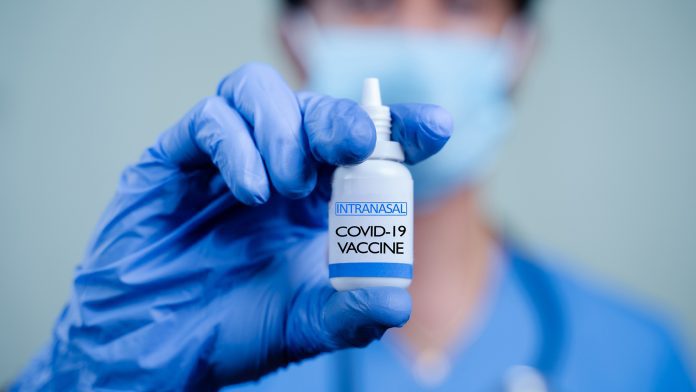
A Phase 1 trial testing the safety of an experimental nasal vaccine that may provide enhanced breadth of protection against emerging variants of SARS-CoV-2, the virus that causes COVID-19, is now enrolling healthy adults at three sites in the US.
The National Institutes of Health (NIH) is sponsoring the first-in-human trial of the nasal COVID-19 vaccine, which was designed and tested in pre-clinical studies by scientists from NIH’s National Institute of Allergy and Infectious Diseases (NIAID) Laboratory of Infectious Diseases.
“The rapid development of safe and effective COVID-19 vaccines was a triumph of science, and their use greatly mitigated the toll of the pandemic,” said NIAID Director Jeanne Marrazzo.
“While first-generation COVID-19 vaccines continue to be effective at preventing severe illness, hospitalisations, and death, they are less successful at preventing infection and milder forms of disease.
“With the continual emergence of new virus variants, there is a critical need to develop next-generation COVID-19 vaccines, including nasal vaccines, that could reduce SARS-CoV-2 infections and transmission.”
Rolling out clinical trials of the vaccine
The study aims to enrol 60 adult participants, ages 18 to 64, who have previously received at least three doses of an FDA-approved mRNA COVID-19 vaccine.
Study volunteers will be divided into three cohorts. The first cohort will receive one dose of the investigational vaccine delivered in a nasal spray at the lowest dosage, with participants in the next two cohorts receiving progressively higher doses.
During seven follow-up visits over about one year, scientists will measure how well the candidate tolerates the nasal vaccine and whether it generates an immune response in the blood and nose.
How a nasal COVID-19 vaccine works
The investigational vaccine, MPV/S-2P, uses murine pneumonia virus (MPV) as a vector to deliver a version of the SARS-CoV-2 spike protein (S-2P) stabilised in its prefusion conformation.
MPV does not cause disease in humans or non-human primates but does have an affinity for epithelial cells that line the respiratory tract.
Therefore, it may be effective in delivering vaccine to the places where natural coronavirus infections begin.
It produced robust systemic immune responses, including SARS-CoV-2-directed antibodies, as well as local immunity in cells in the mucosal tissues lining the nose and respiratory tract.
Studies in humans and animals suggest that mucosal immunity is more effective than systemic immunity in controlling the replication of respiratory viruses.










